Related Research Articles

Vivien Leigh, styled as Lady Olivier after 1947, was a British actress. She won the Academy Award for Best Actress twice, for her definitive performances as Scarlett O'Hara in Gone with the Wind (1939) and Blanche DuBois in the film version of A Streetcar Named Desire (1951), a role she had also played on stage in London's West End in 1949. She also won a Tony Award for her work in the Broadway musical version of Tovarich (1963). Although her career had periods of inactivity, in 1999 the American Film Institute ranked Leigh as the 16th-greatest female movie star of classic Hollywood cinema.

Laurence Kerr Olivier, Baron Olivier was an English actor and director who, along with his contemporaries Ralph Richardson and John Gielgud, was one of a trio of male actors who dominated the British stage of the mid-20th century. He also worked in films throughout his career, playing more than fifty cinema roles. Late in his career he had considerable success in television roles.

Sir Kenneth Charles Branagh is a British actor and filmmaker. Branagh trained at the Royal Academy of Dramatic Art in London and has served as its president since 2015. He has won an Academy Award, four BAFTAs, two Emmy Awards, a Golden Globe Award, and an Olivier Award. He was appointed a Knight Bachelor in the 2012 Birthday Honours. He was made a Freeman of his native city of Belfast in January 2018. In 2020, he was listed at number 20 on The Irish Times list of Ireland's greatest film actors.
Sir Ralph David Richardson was an English actor who, with John Gielgud and Laurence Olivier, was one of the trinity of male actors who dominated the British stage for much of the 20th century. He worked in films throughout most of his career, and played more than sixty cinema roles. From an artistic but not theatrical background, Richardson had no thought of a stage career until a production of Hamlet in Brighton inspired him to become an actor. He learned his craft in the 1920s with a touring company and later the Birmingham Repertory Theatre. In 1931 he joined the Old Vic, playing mostly Shakespearean roles. He led the company the following season, succeeding Gielgud, who had taught him much about stage technique. After he left the company, a series of leading roles took him to stardom in the West End and on Broadway.

Frederick George Peter Ingle Finch was an English-Australian actor of theatre, film and radio.
Sir Trevor Robert Nunn is a British theatre director. He has been the Artistic Director for the Royal Shakespeare Company, the Royal National Theatre, and, currently, the Theatre Royal, Haymarket. He has directed dramas for the stage, like Macbeth, as well as opera and musicals, such as Cats (1981) and Les Misérables (1985).
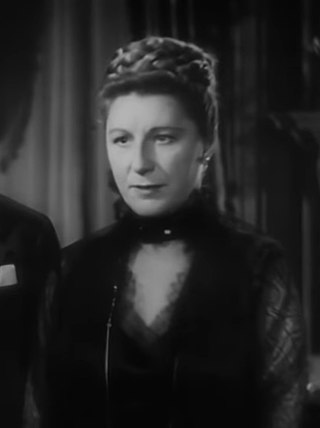
Dame Frances Margaret Anderson,, known professionally as Judith Anderson, was an Australian actress who had a successful career in stage, film and television. A pre-eminent stage actress in her era, she won two Emmy Awards and a Tony Award and was also nominated for a Grammy Award and an Academy Award. She is considered one of the 20th century's greatest classical stage actors.
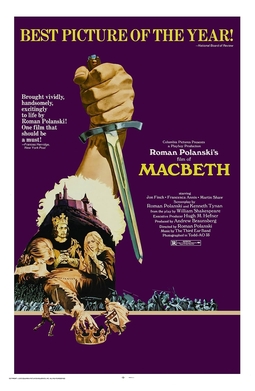
Macbeth is a 1971 historical drama film directed by Roman Polanski and co-written by Polanski and Kenneth Tynan. A film adaptation of William Shakespeare's tragedy of the same name, it tells the story of the Highland lord who becomes King of Scotland through treachery and murder. The film stars Jon Finch as the title character and Francesca Annis as Lady Macbeth, noted for their relative youth as actors. Themes of historic recurrence, greater pessimism and internal ugliness in physically beautiful characters are added to Shakespeare's story of moral decline, which is presented in a more realistic style.

Kenneth Peacock Tynan was an English theatre critic and writer. Making his initial impact as a critic at The Observer, he praised John Osborne's Look Back in Anger (1956), and encouraged the emerging wave of British theatrical talent. In 1963, Tynan was appointed as the new National Theatre Company's literary manager.

Patricia Claire Bloom is an English actress. She is known for leading roles in plays such as A Streetcar Named Desire,A Doll's House, and Long Day's Journey into Night, and has starred in nearly sixty films.

Geraldine McEwan was an English actress, who had a long career in film, theatre and television. Michael Coveney described her, in a tribute article, as "a great comic stylist, with a syrupy, seductive voice and a forthright, sparkling manner".

Jill Esmond was an English stage and screen actress. She was the first wife of Laurence Olivier.

Richard III is a 1955 British Technicolor film adaptation of William Shakespeare's historical play of the same name, also incorporating elements from his Henry VI, Part 3. It was directed and produced by Laurence Olivier, who also played the lead role. Featuring many noted Shakespearean actors, including a quartet of actors who were later knighted, the film depicts Richard plotting and conspiring to grasp the throne from his brother King Edward IV, played by Sir Cedric Hardwicke. In the process, many are killed and betrayed, with Richard's evil leading to his own downfall. The prologue of the film states that history without its legends would be "a dry matter indeed", implicitly admitting to the artistic licence that Shakespeare applied to the events of the time.

Macbeth is a 1948 American historical drama directed by Orson Welles. A film adaptation of William Shakespeare's tragedy of the same name, it tells the story of the Scottish general who becomes the King of Scotland through treachery and murder. The film stars Welles in the lead role and Jeanette Nolan as Lady Macbeth.
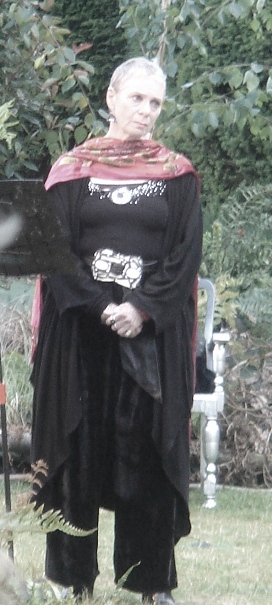
Sara Kestelman is an English actress. She is known for her role as Lady Frances Brandon, Lady Jane Grey's mother, in the 1986 film Lady Jane, as well as for providing the voice of Kreia in Star Wars Knights of the Old Republic II: The Sith Lords.
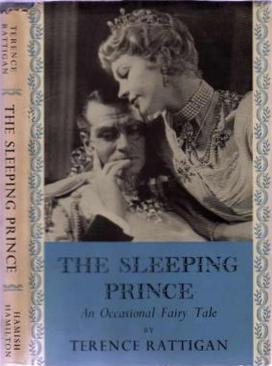
The Sleeping Prince: An Occasional Fairy Tale is a 1953 play by Terence Rattigan, conceived to coincide with the coronation of Elizabeth II in the same year. Set in London in 1911, it tells the story of Mary Morgan, a young actress, who meets and ultimately captivates Prince Charles of Carpathia, considered to be inspired by Carol II of Romania.

Wuthering Heights is a 1939 American romantic period drama film directed by William Wyler, produced by Samuel Goldwyn, starring Merle Oberon, Laurence Olivier and David Niven, and based on the 1847 novel Wuthering Heights by Emily Brontë. The film depicts only 16 of the novel's 34 chapters, eliminating the second generation of characters. The novel was adapted for the screen by Charles MacArthur, Ben Hecht and John Huston (uncredited). The supporting cast features Flora Robson and Geraldine Fitzgerald.

The Jigsaw Man is a 1983 British espionage film starring Michael Caine, Susan George,Laurence Olivier and Robert Powell. It was directed by Terence Young. The screenplay was written by Jo Eisinger, based on the novel The Jigsaw Man by Dorothea Bennett.
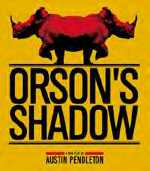
Orson's Shadow is a play by Austin Pendleton. The play received a Lucille Lortel Award nomination for Outstanding Play and won the Drama League Award for Distinguished Performance.

Macbeth is a 2015 epic historical drama film directed by Justin Kurzel and written for the screen by Jacob Koskoff, Todd Louiso and Michael Lesslie, based on William Shakespeare's play of the same name. The film stars Michael Fassbender in the title role and Marion Cotillard as Lady Macbeth, with Paddy Considine, Sean Harris, Jack Reynor, Elizabeth Debicki and David Thewlis in supporting roles. The story follows a Scottish lord's rise to power after receiving a prophecy from a trio of witches that one day he will become King of Scotland. Like the play it was adapted from, the film dramatises the damaging physical and psychological effects of political ambition on those who seek power for its own sake.
References
- ↑ Dominic Shellard Kenneth Tynan: A Life, London & New Haven, NJ: Yale University Press, 2003, p.123
- 1 2 Terry Coleman Olivier: The Authorised Biography, London: Bloomsbury, 2005, p.272
- ↑ Shellard, p,126
- ↑ Coleman, p.277
- ↑ Philip Ziegler Olivier, MacLehose Press2013, p.167
- 1 2 Daniels, Robert L. (1980). Laurence Olivier, theater and cinema. A.S Barnes.
- ↑ Morris, Steven (25 January 2013). "Laurence Olivier's Macbeth film project rises from the dead 50 years on". The Guardian . Retrieved 25 January 2013.
- ↑ "Catalogue record for Olivier's Macbeth, British Library catalogue" . Retrieved 8 February 2013.